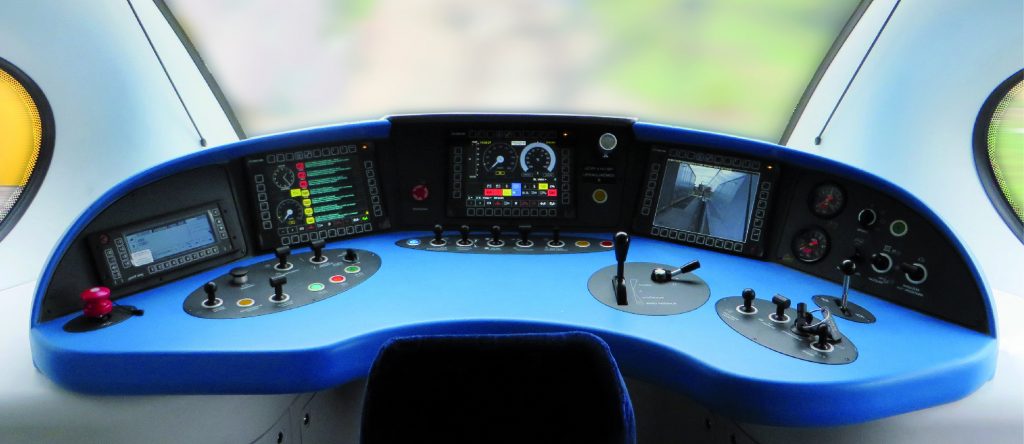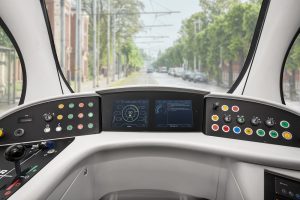 Our KonHMIs (Human-Machine Interface) are complete HW&SW solutions for application in railway vehicles, heavy-duty vehicles, and various industrial systems. They are designed for processing-intensive graphical and digital video applications. Their flexibility enables the adaptation of mechanics and the definition of displays according to the specific user needs, as well as integration into various industrial systems and vehicles.
Our KonHMIs (Human-Machine Interface) are complete HW&SW solutions for application in railway vehicles, heavy-duty vehicles, and various industrial systems. They are designed for processing-intensive graphical and digital video applications. Their flexibility enables the adaptation of mechanics and the definition of displays according to the specific user needs, as well as integration into various industrial systems and vehicles.
KonHMI is a fully customizable, modular, robust, and reliable platform that offers high-performance graphics capabilities. The platform includes an operating system and proprietary graphical programming tools for developing HMI applications, Grap Display.
 The fanless casing is designed to increase reliability and versatility, save space inside the mounting desk, and reduce noise. The connector’s layout on the backside is fully customizable, offering all standard interfaces such as RS232, RS485, CAN, USB, Ethernet, mPCI for MVB modules, digital audio, HDMI as optional, etc.
The fanless casing is designed to increase reliability and versatility, save space inside the mounting desk, and reduce noise. The connector’s layout on the backside is fully customizable, offering all standard interfaces such as RS232, RS485, CAN, USB, Ethernet, mPCI for MVB modules, digital audio, HDMI as optional, etc.
KonHMI meets all relevant railway standards and functions reliably, even under the most difficult climatic conditions as it is made for operation in the harshest environment.
On our clients’ requests, we implemented three options within the KonHMI platform:
KonHMI 101A KonHMI 102A with a dual touch screen KonHMI 103A/B
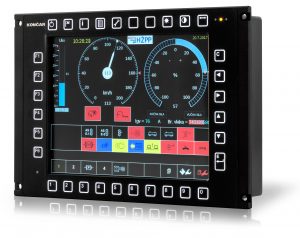
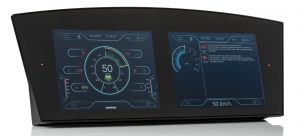
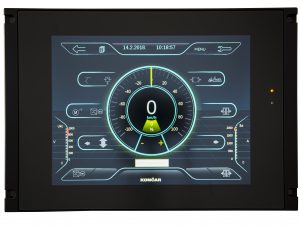
As our client, you can choose between those options, or you can tell us your requirement and we will develop an HMI solution according to your specific needs. Our main approach is based on the customization of our solutions which includes screen sizes and formats, housing dimensions, housing color, power range, and temperature range.
Have a question about our HMIs or other solutions related to control, electronics, communication, and ICT in the railway sector? Contact our team to find the right solution for your business!
If you ask yourself why we decided to develop our own HMI solutions you can read more about this topic on our blog: KonHMI – How it started
